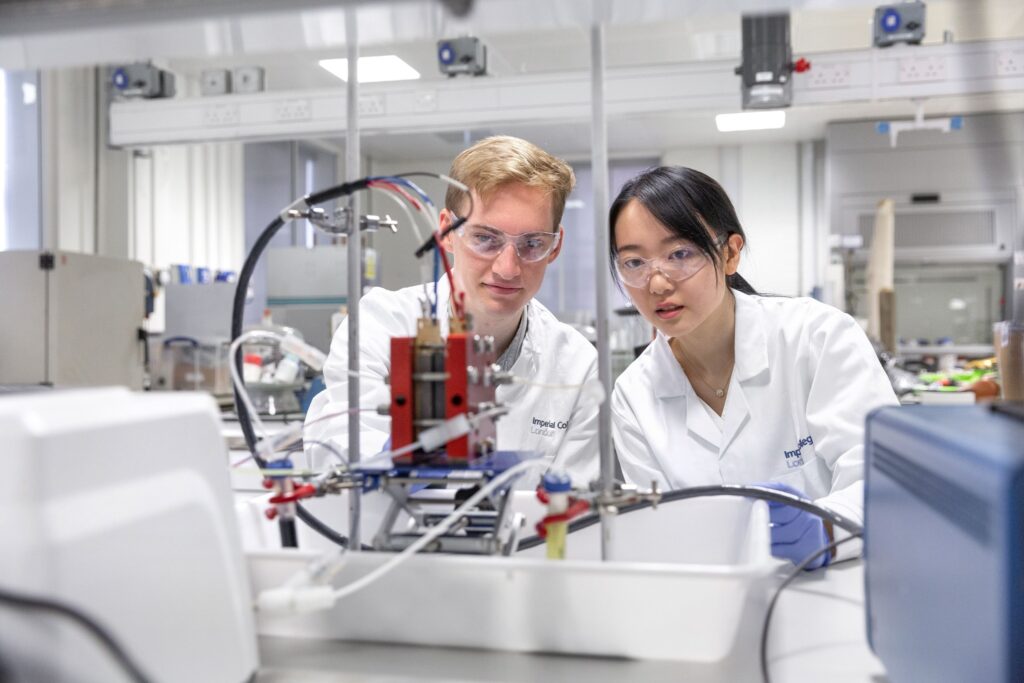
The dawn of Industry 4.0 demands a new generation of engineers well-versed in the science behind materials. This urgency stems from the breakneck pace of advancements in nanotechnology, 3D printing, machine learning, and automation.
These innovations are propelling materials engineering forward at an unprecedented rate, leading to breakthroughs across all sectors. From the steel that holds up our buildings to the silicon powering our computers, materials science remains the backbone of progress. Metals, polymers, semiconductors, and ceramics — the fundamental building blocks of engineering — demand a comprehensive understanding at the molecular level.
To that end, a postgraduate programme at one of the world’s leading materials science departments represents the ideal first step. These programmes boast a proven track record, equipping graduates with the necessary skills and knowledge to thrive in this ever-evolving landscape.
Here are three institutions that offer such programmes that you can consider:

The PMP encourages students to pursue internships with companies. Source: Purdue University
Purdue University
Ranked amongst the top 100 universities in the world (QS World University Rankings 2024), Purdue University is home to a College of Engineering that’s just as top-ranked. It is #4 among engineering graduate programmes in the US (US News & World Report). The School of Materials Engineering (MSE) is part of the largest engineering college in the country’s top five.
Here, aspiring professionals can pursue a Professional Master’s Programme (PMP) without a background in materials engineering. Students based in the US or beyond, and with Chemistry, Physics, and other engineering degrees, are welcome to apply as well.
The PMP bridges the gap for those seeking to enter or pivot into the field of materials science and engineering by equipping them with the necessary technical foundation, mentorship, and professional development opportunities. It caters to those interested in regional, national, and international industrial sectors.
The PMP differs from a research-based master’s degree by allowing students to design their own path and timeline. Internships are encouraged, and the curriculum includes courses like project management, marketing, or business — valuable assets in the industry — that aren’t usually included in research-based MS programmes.
Students can take up to 12 credits outside of MSE, focusing on business, leadership, communication, or entrepreneurship — areas typically unavailable in research-focused Master’s programmes. The core curriculum includes 18 credits of MSE courses, with nine tailored to the student’s specific interests, such as materials processing, characterisation, or computational materials.
Whichever courses they choose, the PMP provides insights into how to develop sustainable materials solutions for a cleaner future. PMP students gain the expertise to contribute immediately to industries seeking advancements in material creation, eco-friendly manufacturing, and the application of materials science across various sectors, from semiconductors to batteries and construction.
Perhaps the most exciting aspect of the programme lies in the diverse career paths graduates can take. Unlike some engineering specialisations, MSE graduates are not limited to a single industry. Their adaptability and expertise make them “ready to work” and highly sought-after by various sectors.

At ETH Zürich, students can personalise their master’s degree programme in Materials to suit their interests. Source: ETH Zürich/Facebook
ETH Zürich
ETH Zürich needs no introduction when it comes to academic excellence. It is ranked seventh among the world’s top universities by the latest QS World University Rankings and sits at the 11th spot in the Times Higher Education (THE) World University Rankings 2024. A university that is primarily devoted to the sciences, it has produced 22 Nobel laureates among its alumni, including Albert Einstein himself.
Under the Department of Materials, the institution has a Master Materials Science and Engineering that exposes students to cutting-edge research and diverse expertise in Materials and related fields.
While core courses solidify a foundation in material structures, properties, and characterisation, a diverse range of electives allows you to specialise in areas like energy technology or delve into broader scientific fields through courses offered by other departments. Plus, ETH Zurich’s “Science in Perspective” programme ensures well-rounded graduates by incorporating humanities, social sciences, and political science coursework.
Hands-on learning is paramount at ETH Zurich. You will gain practical experience through an eight-week research project, a six-month master’s thesis, and a 12-week industrial internship. This combination equips you with the ability to tackle a wide range of research and development challenges upon graduation. From developing innovative materials for next-generation products to leading interdisciplinary teams, graduates of the master’s programme are prepared to make significant contributions in various scientific and engineering fields.
This full-time, English-language programme is ideal for students with engineering or science backgrounds that include a foundation in materials science.

At Imperial College London, students can pursue an accredited programme to explore innovative materials and access advanced knowledge by collaborating with established research groups. Source: Imperial College London/Facebook
Imperial College London
With an 84% student satisfaction score by the National Student Survey 2021, Imperial College London is ranked first among fellow London universities and at the top of the table of Russell Group institutions. It ranks fifth in the UK, according to the UK University Guide 2022, and eighth globally, according to the QS World University Rankings 2021, all of which can explain how it can attract talented students from over 125 countries.
The Department of Materials — which offers the MSc in Advanced Materials Science and Engineering — performs well on league tables a swell. It ranks third in the UK for Materials Technology by the Complete University Guide 2022.
This professionally accredited programme provides a strong foundation in materials science and engineering principles. Fusing coursework and original research, it allows you to dive fully into core areas like Characterisation of the Structure of Materials, Theory and Simulation of Materials, and The Art of Research. You can also explore specialised topics through elective modules in Engineering Alloys, Nanomaterials, and Biomaterials, tailoring studies to your interests.
A key strength of the programme lies in its research focus. You can collaborate on real-world projects with established research groups, gaining valuable experience designing, implementing, and evaluating solutions to engineering problems. What’s more, the programme offers an exciting specialisation in Materials for the Energy Transition, equipping graduates with the expertise to contribute to a more sustainable future.
Imperial College London’s world-class facilities further enhance the learning experience. MSc candidates have access to the cutting-edge Advanced Characterisation Facility Suite, allowing them to develop their research projects under the guidance of experienced professors.
*Some of the institutions featured in this article are commercial partners of Study International







